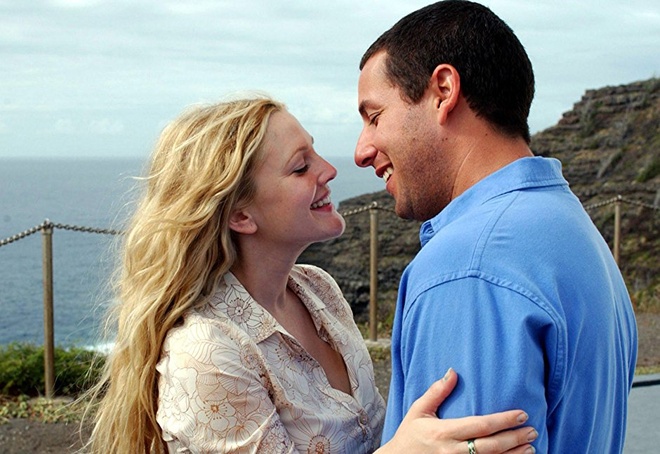A Detailed Review of 50 First Dates (2004)
50 First Dates, directed by Peter Segal and starring Adam Sandler and Drew Barrymore, is a charming romantic comedy that blends humor with heartfelt emotion in an unconventional love story. Released in 2004, the film explores the boundaries of memory, love, and commitment through a unique narrative concept that stands out in the rom-com genre.
Set in the picturesque landscape of Hawaii, the story follows Henry Roth (Adam Sandler), a marine veterinarian with a notorious reputation for dating tourists and avoiding long-term relationships. That changes when he meets Lucy Whitmore (Drew Barrymore), a sweet and artistic local woman with whom he instantly connects. However, Henry quickly discovers that Lucy suffers from short-term memory loss due to a car accident, which causes her to forget each day as soon as she goes to sleep. Every morning, Lucy wakes up thinking it’s the same day, completely unaware that her life has changed.
Rather than giving up, Henry embarks on a mission to make Lucy fall in love with him—every single day. With the help of her protective family and quirky friends, he devises creative ways to introduce himself and win her heart over and over again. What unfolds is a touching journey filled with laughs, setbacks, and sincere emotional moments.
Adam Sandler and Drew Barrymore share a palpable chemistry, building on their earlier collaboration in The Wedding Singer. Sandler brings both humor and unexpected sensitivity to his role, portraying Henry as more than just a jokester, but a man deeply committed to love. Barrymore, meanwhile, delivers a genuinely endearing performance that balances vulnerability and strength, making Lucy a character audiences can root for.

The supporting cast also adds a comedic edge, particularly Rob Schneider as Henry’s eccentric best friend Ula, and Sean Astin as Lucy’s overly enthusiastic bodybuilder brother. Their antics provide consistent comic relief without undermining the film’s emotional weight. The lush Hawaiian setting enhances the story’s charm, offering a visually relaxing backdrop that underscores the film’s warm and optimistic tone.
What makes 50 First Dates truly stand out is its exploration of what love really means. It poses the question: can love endure even when memory fails? The film’s answer is both uplifting and thought-provoking. By repeatedly choosing to love someone with no promise of being remembered, Henry exemplifies a kind of selfless devotion that is both rare and admirable.
:max_bytes(150000):strip_icc():focal(999x0:1001x2)/50-first-dates-couple-2-2000-65208c5a160644dc943142a3a49a4c0f.jpg)
Though the film has its share of typical romantic comedy tropes, it handles its central premise with care and heart. Rather than mocking Lucy’s condition, the movie treats it with respect, focusing on her autonomy and the support system around her. The ending, while bittersweet, offers hope and reinforces the idea that love is not about grand gestures, but daily choices and effort.
In conclusion, 50 First Dates is more than just a feel-good romantic comedy—it is a touching story about the power of love, patience, and resilience. With memorable performances, a unique plot, and a perfect blend of humor and emotion, it remains one of the most beloved romantic comedies of the early 2000s.


